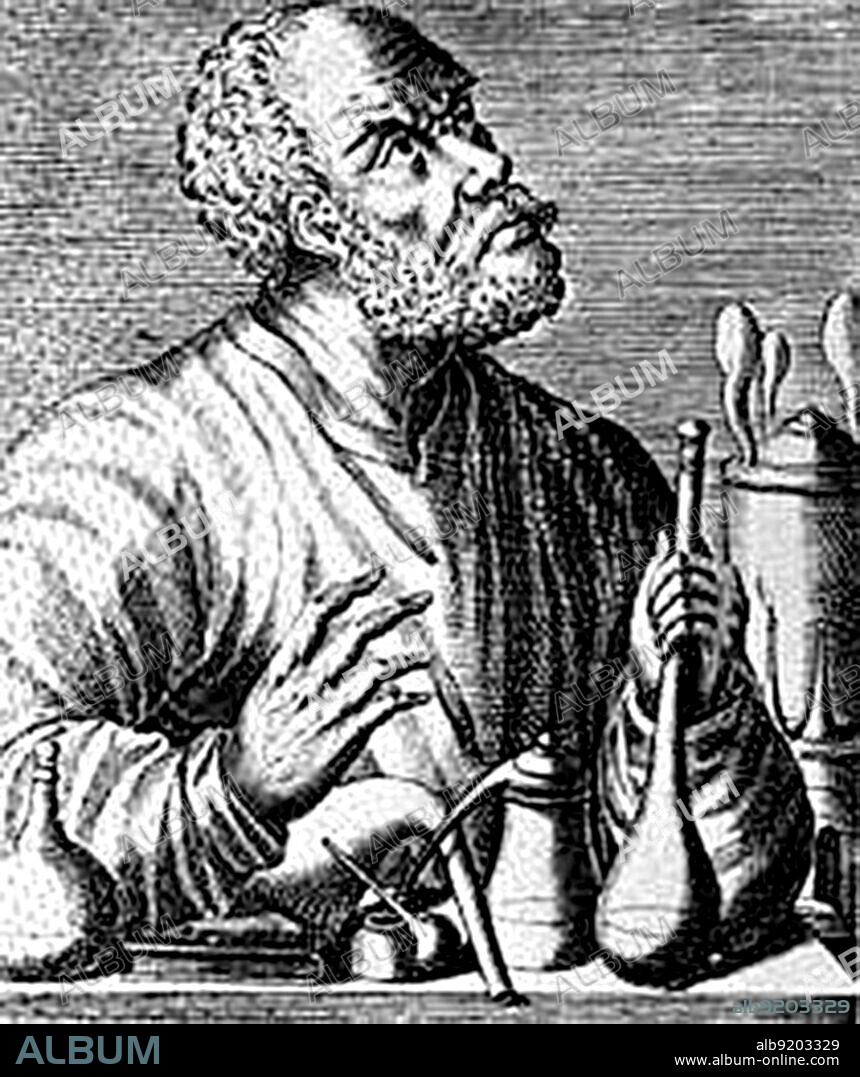alb9203329
Geber, Arab Polymath

|
Ajouter à une autre Lightbox |
|
Ajouter à une autre Lightbox |



Avez-vous déjà un compte? S'identifier
Vous n'avez pas de compte ? S'inscrire
Acheter cette image

Titre:
Geber, Arab Polymath
Légende:
Voir la traduction automatique
Abu Musa Jabir ibn Hayyan also known as Geber (721-815) was a prominent polymath: a chemist and alchemist, astronomer and astrologer, engineer, geologist, philosopher, physicist, and pharmacist and physician. Born and educated in Tus, located in Iran's Persian heartland of Khorasan, he later traveled to Kufa. Jabir is held to be the first practical alchemist. Jabir is mostly known for his contributions to chemistry. He emphasized systematic experimentation, and did much to free alchemy from superstition and turn it into a science. He is credited with the invention of many types of now-basic chemical laboratory equipment, and with the discovery and description of many now commonplace chemical substances and processes such as the hydrochloric and nitric acids, distillation, and crystalisation that have become the foundation of today's chemistry and chemical engineering. His books strongly influenced the medieval European alchemists and justified their search for the philosopher's stone. In spite of his leanings toward mysticism (he was considered a Sufi) and superstition, he more clearly recognized and proclaimed the importance of experimentation. "The first essential in chemistry", he declared, "is that you should perform practical work and conduct experiments, for he who performs not practical work nor makes experiments will never attain the least degree of mastery." Jabir is also credited with the invention and development of several chemical instruments that are still used today, such as the alembic, which made distillation easy, safe, and efficient.
Crédit:
Album / New York Public Library / Science Source
Autorisations:
Modèle: Non - Propriété: Non
Questions sur les droits?
Questions sur les droits?
Taille de l'image:
Pas disponible
Taille d'impression:
Pas disponible
Mots clés:
8E SIECLE • 8EME S • 9E SIECLE • 9EME S • ALCHIMIE • ASTROLOGUE • ASTRONOMIE • CÉLÈBRE • CELEBRITE • CHIMIE • CHIMISTE • DISTILLATION • DOCTEUR • DOCTEURS • EGERIE • HOMME • ILLUSTRATION • INGÉNIERIE • INGENIEUR • INVENTEUR • MEDECIN • MUSE • MUSES • NEUF MUSES • SCIENCE: ASTRONOMIE • SCIENCE: CHIMIE
 Pinterest
Pinterest Twitter
Twitter Facebook
Facebook Copier le lien
Copier le lien Email
Email
